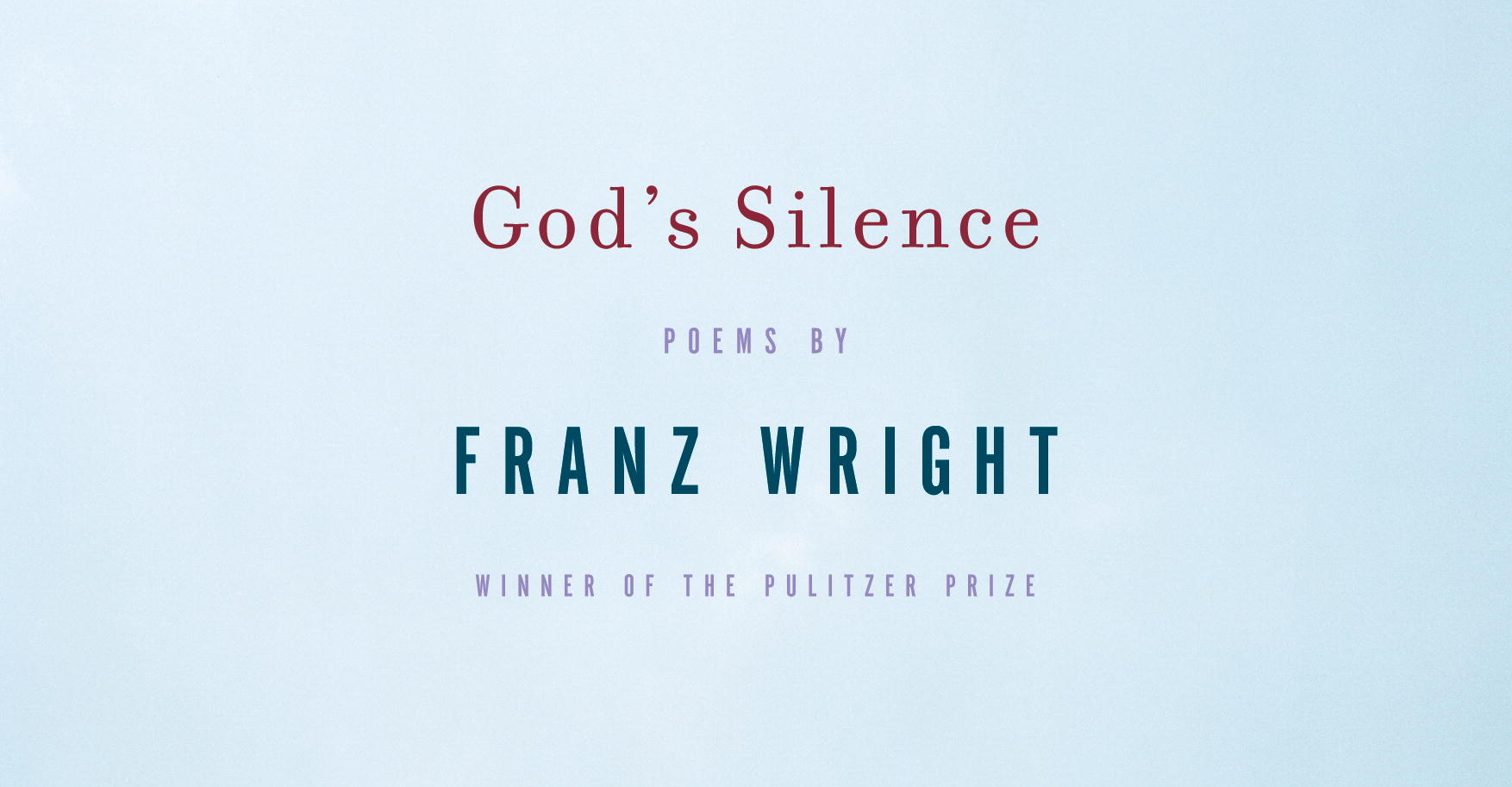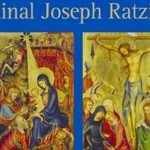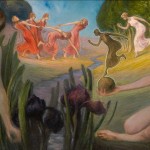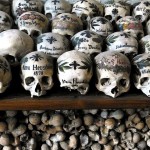Everybody probably knows by now about B.B. King’s death. Fewer of you might be aware that another member of our artistic royalty passed away on the same day: the Catholic poet Franz Wright.
Franz too knew the blues. He paints them with Catholic imagery in such a way that it makes you see Catholicism in a new way. It also makes you look at your failings (or are they victories in weakness?) in a new way.
His poetry is “complete community of fate with the lost,” made all the more difficult because the poet not infrequently saw himself as one of the lost.
The following poem demonstrates his brave use of tradition Catholic imagery. It features one of the formative images of my childhood: a statue of the Virgin stomping down a serpent’s head.
My grandmother had one of these statues on her bed-stand. I spent many a moment staring at the curious scene at Mary’s feet, speculating what it meant. I was saddened to see the statue in a dilapidated state the last time I was in Poland. It was a sign some part of my past irrevocably passing, touched by decomposition.
“Transformation”
by Franz Wright
from the collection God’s Silence
It gets late early now
This is
when I like to visit
you at the top of your hidden
still green stairway, holy
Mother with the downcast
eyes as a girl of sixteen
almost unnoticed the right bare foot pinning
the serpent with the one-
leafed little apple in its jaws
poor thing, one is tempted
to say, so transformed
by its contact with you
is everything–
Decomposition in the form of addiction, perhaps also madness too (holy?), haunted Wright throughout his life.
This is why his poems resonated with me. Aristotle says human beings are addictive (imitative) animals through and through. God knows I have discovered myself as possibly the most addictive human being of them all. But I’ve learned this is not entirely a bad thing, not irredeemable, in part thanks to Franz.
The borderline between decay and revelation is always thin in his poems–as it it in life. The way down is frequently the way up as our mangled desires quietly, yet somehow also violently, gesticulate towards something else, toward their real aim, as in “The Walk,” also from God’s Silence:
More malicious and frightening behavior
on the part of inanimate objectsI walked outside today, and the void was shining
Immortal and infinite
word
And I have heard
God’s silence
like the sunFor the last time I stumbled
into a church
where no one was home, silently
screamingHelp me: I can’t live
without You I don’t want to live
I came in the midst of the world
and in the flesh I appeared to you
(I seemed to hear this, originless)
and I found you all
drunk and no one
did I find among you
thirstingStaggered out again and took a look around
and suddenly noticed the others
each wearing that identical
expression, What is wrong with me –What’s going to happen
to me
And I heard again
the faceless voice
saying, How can you expect energy from above
when you continue to receive it
from below
and are content?I Am Not Content!
These blues approach the “unholy holiness” mentioned in yesterday’s post. Addictions, like monastic practice, can strip one of all illusions of grandeur.
What remains is a hollowed out space of silence, often complete and even frightening, where you might–but you might not, since you’re not in control, or, you are out of control–hear The Voice calling from the rock bottom of your poverty.
Cheers:
I think these two deaths give a new edge to my interview with Kevin M. Johnson on the topic of practicing silence. Do take a look at it. I think it’s one of the most important things I’ve posted on this blog.
Franz Wright remains on my TOP10 list of living religious poets along with Tomas Transtromer. It seems too soon and too impious to remove them too quickly.













